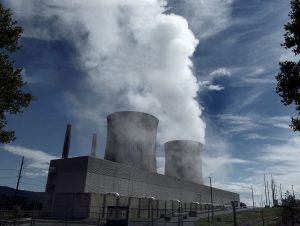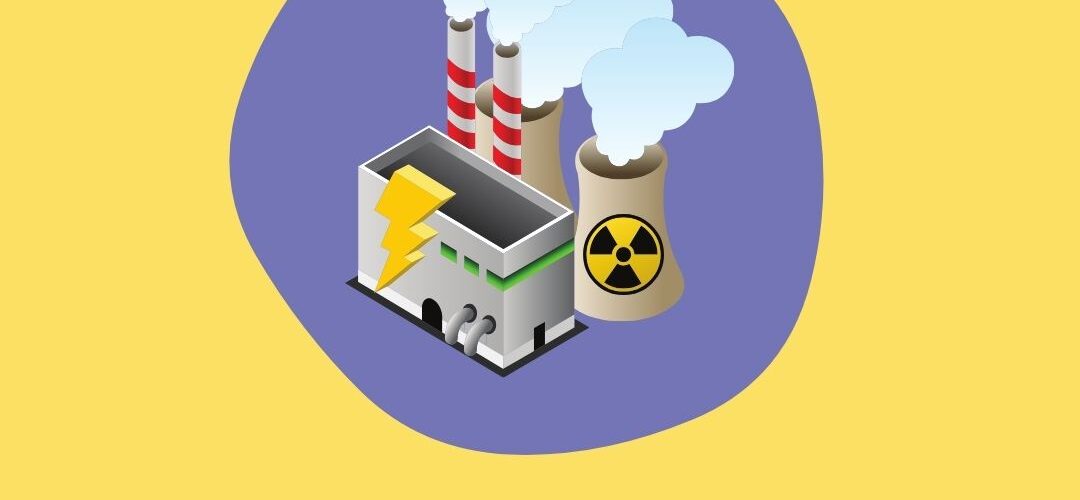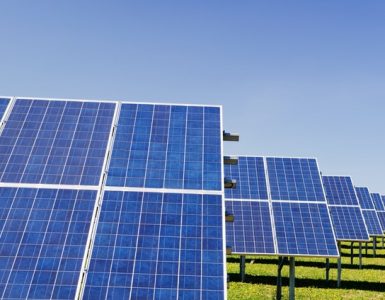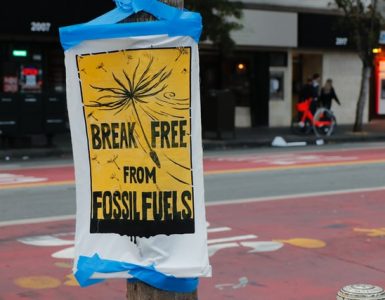The world is facing a severe energy crisis, owing to the rising global population, industrialization, burgeoning consumption, infrastructure development and new technologies.
As thermal power and traditional fossil fuel sources become increasingly unsustainable due to their environmental impact and dwindling reserves, the search for cleaner, more reliable energy alternatives has intensified.
Though renewables like solar, wind and hydro-based power sources have emerged as front-runners in our clean energy transition, there is a growing demand for additional sources.
Nuclear power once viewed with scepticism due to safety concerns, is now being reconsidered as a viable solution to address the current energy challenges.
Nuclear energy provides large-scale energy without significant greenhouse gas emissions, emerging as a critical clean energy source in addressing the world’s energy crisis.

About Nuclear Energy
Nuclear power has been a cornerstone of electricity generation for over half a century.
The process of nuclear fission, where atoms are split to release energy, offers a promising path towards a clean, net-zero energy future.
Nuclear power stations operate similarly to fossil fuel plants, but the underlying technology is far more advanced. In a nuclear reactor, a chain reaction splits atoms, releasing heat energy that is used to generate steam. This steam powers turbines, producing electricity.
Factors that Make Nuclear Favorable
Nuclear energy is a clean energy technology, producing virtually no carbon dioxide or other greenhouse gas emissions. It also avoids the air pollution associated with fossil fuels.
Here are some key characteristics that make nuclear energy a valuable addition to the energy mix:
Reliable, long-term electric supply: Our lives have become so dependent on energy that we need reliance source of energy. Variability in supply can have a severe impact on many functions, like defence, factories, hospitals and other critical services.
Nuclear power plants provide predictable, large-scale electricity, with reactors achieving high-capacity factors. Modern plants can operate for several years and hence the perfect alternative to reduce reliance on fossil fuels and different energy sources.
Solar Energy is dependent on the sun’s availability while wind energy needs favourable wind conditions, in comparison, nuclear power can be generated 24/7, regardless of weather.
This reliability helps to lower the carbon intensity of the electric supply, especially during times when other renewables may be less available.
Energy density: Uranium is a highly concentrated energy source that can be easily and cheaply transported. The amount of uranium needed for a nuclear power plant is significantly less than for coal or oil, making it a portable and tradeable commodity.
Geographical and political availability: Uranium is relatively abundant and distributed across various countries, reducing the risk of supply disruptions.
Predictable costs: Fuel costs for nuclear plants are a minor portion of total generating costs, ensuring predictable electricity prices throughout the plant’s operational lifetime.
Furthermore, modern nuclear power stations are designed to operate for 80 years or more, significantly longer than fossil fuel plants and many renewable installations.
However, their lifespan depends on economic factors, including revenue, expenses, and decommissioning costs.
Resilient infrastructure: Nuclear plants are built to withstand extreme weather conditions and continue operating.
Grid services: Nuclear power can provide ancillary services like frequency control and grid inertia, supporting the integration of variable renewable energy.
Heat and power: Nuclear energy is a viable option for industrial heat applications, reducing demand for oil and natural gas.
Challenges of Going Nuclear
Despite its many advantages, nuclear energy faces ongoing challenges, particularly regarding spent fuel disposal and the risk of accidents.
In addition to this, the lack of public awareness contributes to scepticism regarding its use. While there is no definitive permanent disposal solution for spent fuel, significant advancements in storage technologies and safety regulations have reduced the risks associated with its handling.
The history of nuclear power generation includes several dangerous accidents, including the Chornobyl and Fukushima accidents. These accidents released radioactive material into the environment, thereby raising public fears.
However, modern nuclear reactors have incorporated multiple safety features to prevent accidents and mitigate their consequences.
Future of Nuclear Energy
While its origin in the 1940s was focused on military applications, the 1950s saw a shift towards more peaceful uses, particularly in power generation. The commercial nuclear industry, which began in the 1960s, has evolved into a global enterprise with diverse applications.
Beyond electricity generation, nuclear energy finds applications in diverse fields such as space exploration, medical diagnosis and treatment, criminal investigation, and, agriculture, and most importantly mitigating energy crisis.
The future of nuclear energy also looks promising as we see a new version of the technology, called Nuclear Fusion, where two hydrogen atoms fuse at a very high temperature and pressure, and release energy.
Nuclear fusion offers more advantages over nuclear fission as reactors are much smaller and are built using much safer controls. In addition, the nuclear fusion reactors create lower nuclear waste.
Wrapping Up
To address the current and future energy needs, a diverse energy mix of renewable energy sources is essential.
Nuclear power can provide a reliable, clean and affordable energy source. By investing in nuclear technology and implementing stringent safety measures, countries can harness its benefits while minimizing the risks.
As the world grapples with the challenges of energy scarcity and climate change, nuclear power presents a compelling solution.
While safety concerns must be addressed, the potential benefits in terms of reliability, efficiency and environmental sustainability make it a valuable component of a sustainable energy future.






Add comment